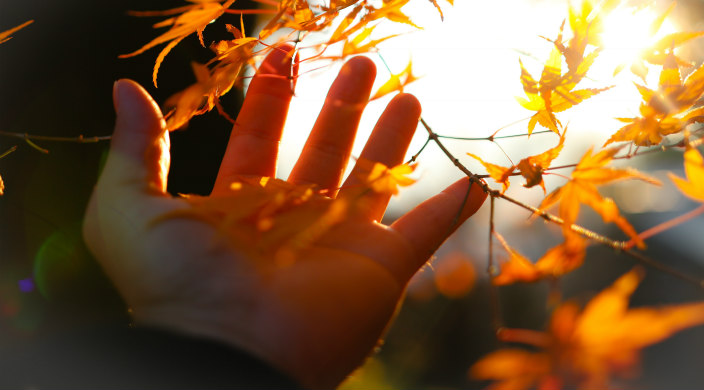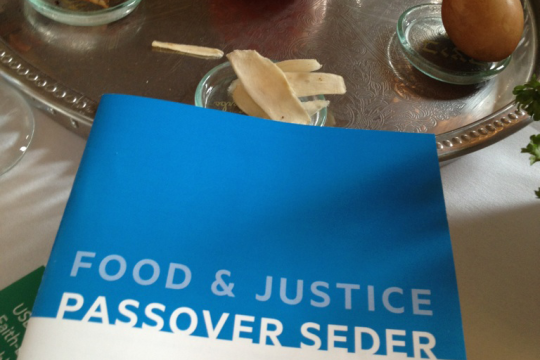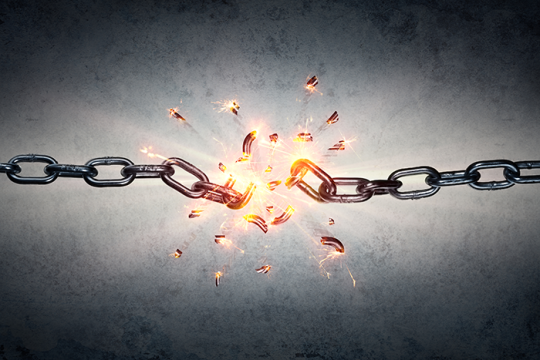
In Hebrew, the High Holidays are called Yamim Nora-im, often translated as “Days of Awe,” because we stand in awe before the Holy One and the eternal questions we are summoned to consider. During this season, our tradition imagines the gates of forgiveness opening and with them, we hope our often hardened hearts will open as well.
In the Hebrew – “Yirah” – the root of the word “Nora-im” means “awe” but also “fear.”
For too many of us, a real fear grips us on the eve of 5780. Of course, there is the fear that comes with the dramatic rise in anti-Semitism we are witnessing in our time. This year’s Yizkor (service of remembrance) will include the names of those murdered while praying in synagogues in Pittsburgh, Pennsylvania, and Poway, California, along with names of so many other of God’s children also gunned down in their own houses of worship around the world. So, for some of us the mere act of walking into synagogue this year is fraught with fear.
It is time that our Jewish community acknowledge that no one has ever looked Jewish, nor have we ever had “Jewish sounding” names. In fact, despite the media’s over exaggeration and hyper-focus on what can only be called “Ashkenormative,” our Jewish communities have always been richly diverse in all the ways a community can be. I say this only to emphasize, that despite our knowledge of Jewish diversity, many of those individuals who fall outside the stereotypical Jew portrayed in the media, who, in fact, are pillars in our congregations, are repeatedly othered, and called on to prove their Jewish authenticity over and over – as if they do not belong. As we enter this holiday season and prepare to welcome Jews of all backgrounds into our buildings – without othering or asking any Jew to prove anything – I ask that we keep in mind that as Jews of Color, who make up between 10 and 20 percent of our Jewish community, enter our houses of worship and see uniformed law enforcement professionals guarding our buildings, the sight may trigger fear rather than reassurance.
Throughout the year, our congregations have been doing intentional work to be simultaneously secure and welcoming. Our Reform Movement thrives on our diversity, our inclusion, and our welcoming spirit. We must acknowledge that the best security practices demonstrate principles related to diversity, equity, and inclusion – ensuring everyone feels safe in our houses of worship, in our sacred spaces.
Let us not forget, however, that what awaits us when we join with our congregations during the Yamim Nora-im is a sacred community that can be an oasis of hope and spiritual renewal. The awe awaits us if we can conquer our fears. We yearn deeply for holy communities that embrace us fully – including our doubts and our commitments. These are communities that are strengthened by the diversity of our people. Though we don’t all earn, believe, vote, or observe in the same way, nonetheless, we are joined to one another. We seek to anchor our lives on the bedrock spiritual obligation to love all of God’s children – only then can we be whole. It is challenging to pray and study in such diverse communities, but at the very same time, it is potentially redemptive.
All of us are painfully aware that our world and our communities are being torn apart by hate and bigotry, and this daily divisiveness is toxic and corrosive. As people of faith, we must challenge the fear caused by hateful rhetoric – whenever and wherever we hear it. Let’s embrace our differences, not thrive on them nor exploit them.
Staying away from synagogue will not replenish the reservoirs of goodness and hope we so desperately crave. When we encounter the fear of being alone, our communities are the very countenance of awe. In the midst of fears that are both real and imagined, there is still much that fills us with joy and hope, promise and sweetness.
During the coming Days of Awe, I hope we all can draw strength from one another, including from those whose beliefs and practices of Judaism are not identical to ours. Let us never forget that we are part of an eternal people who will never stop caring for one another and protecting one another.
It’s this resilience and, indeed, awe, too, that you’ll feel at our upcoming URJ Biennial, as you pray, learn, schmooze, and sing with more than 5,000 of your friends, colleagues, and members of our Reform Jewish family.
In that spirit, both personally and on behalf of the Union for Reform Judaism (URJ), I wish you and your loved ones a year of much awe and little fear, together with the blessings of health, purpose, and peace. And, I look forward to seeing you at the Biennial in Chicago, from December 11-15. Learn more and register now at urjbiennial.org.
Related Posts

Passover 2024: The Three Central Messages of Pesach

Modern-Day Plagues of Injustice and Inequality

